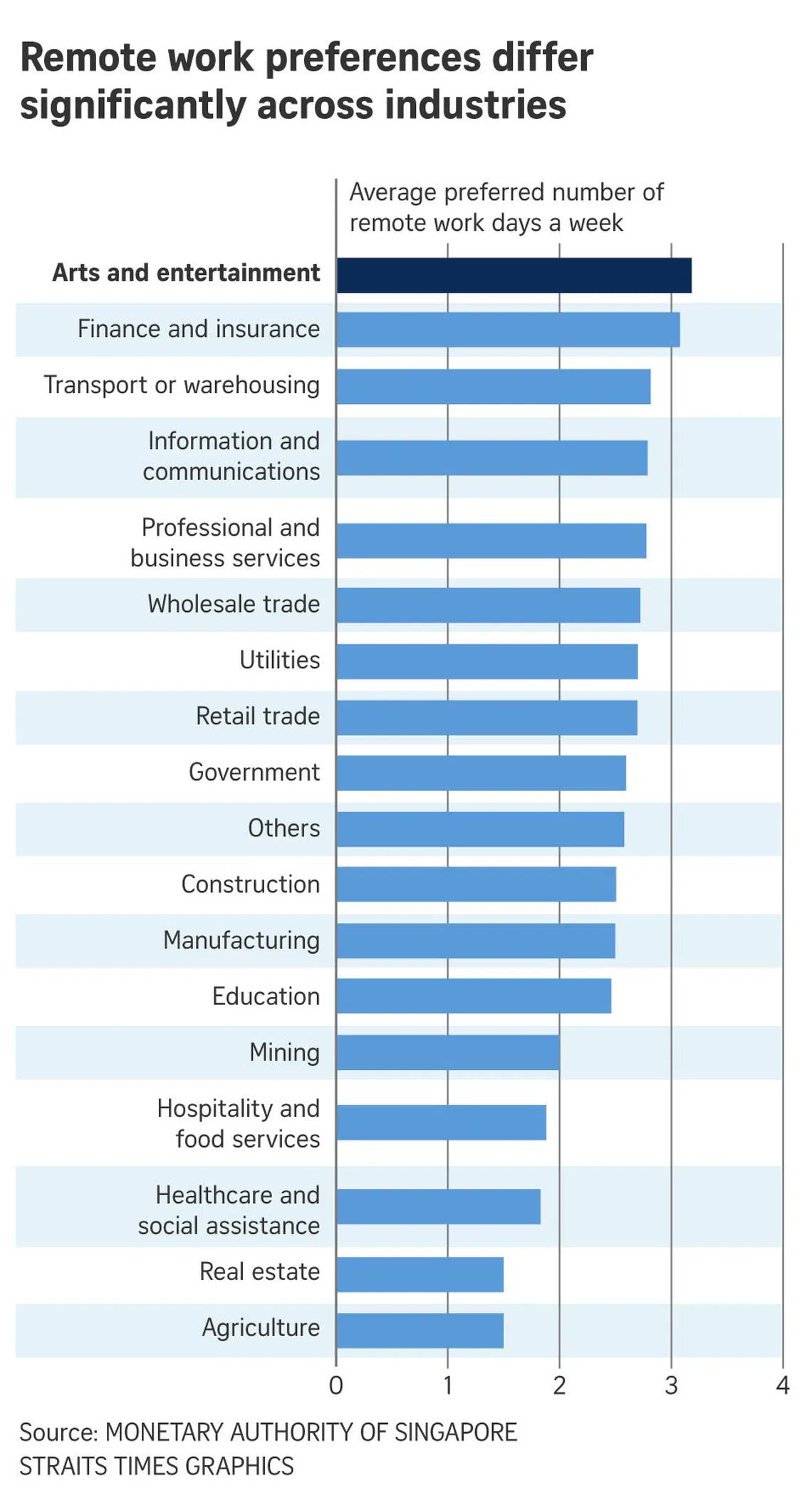More than 7 in 10 S’poreans prefer remote work, higher than global average: IMF economists
Sign up now: Get ST's newsletters delivered to your inbox

The rate of remote work has stabilised at around 20 per cent in Singapore, slightly above pre-Covid-19 pandemic levels, according to the economists.
PHOTO: ST FILE
SINGAPORE – More than seven in 10 Singaporean workers exhibit a stronger preference for remote work, more than their global counterparts, said two International Monetary Fund (IMF) economists.
In an article featured in the Monetary Authority of Singapore’s biannual report
The pair cited a 2022 report by professional services firm PwC, which said that 73 per cent of Singaporean workers indicated a strong preference for a hybrid work model in the next 12 months starting from June 2022. This is substantially higher than the global average of 63 per cent.
The PwC report also revealed that in Singapore, both employees and employers have a higher average desire for remote work relative to almost all other countries globally.
Mr Khan and Ms MacDonald’s article, titled Impact Of The Pandemic On Work From Home Trends And Singapore’s Labour Supply, stated that the rate of remote work has stabilised at around 20 per cent in Singapore, slightly above pre-Covid-19 pandemic levels.
Based on their analysis, the remote working trend in Singapore is not as heavily driven by education or gender, unlike its global peers’, but rather, it is influenced by factors such as age, perceived productivity and the specific sectors in which workers are employed.
For example, younger individuals in Singapore are more inclined to work from home, while Singaporeans with “higher perceived” self-assessed productivity place more value on working from home.
Some 77 per cent of employed residents working in digital sectors such as information and communications and financial services sectors worked remotely during the pandemic in 2020. In contrast, only 11 per cent of employed residents working in the food and beverage services and 28 per cent of health and social service workers worked remotely in that same period.
The article also mentioned data by the Ministry of Manpower (MOM), which found that over 90 per cent of establishments in Singapore offered at least one scheduled flexible work arrangement in 2021, compared with 50 per cent on average over the six years before the pandemic.
In 2022, this figure dropped to 71 per cent, but remained significantly higher than during pre-pandemic levels. Additionally, 34 per cent of employed residents surveyed by MOM in 2022 said they worked from home at least once a month.




